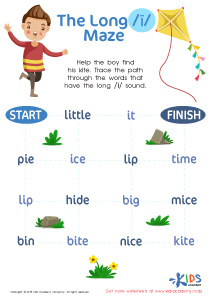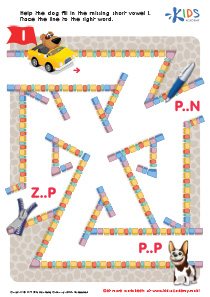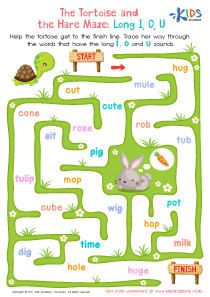Vocabulary expansion Extra Challenge Short Vowels Worksheets for Ages 3-9
3 filtered results
-
From - To
Unlock the full potential of your child's vocabulary with our "Vocabulary Expansion Extra Challenge Short Vowels Worksheets" designed specifically for ages 3-9. These engaging worksheets focus on short vowel sounds, helping young learners enhance their reading and writing skills through fun, purposeful activities. Each worksheet is crafted to spark curiosity and support phonetic understanding, making learning enjoyable for kids. With a mix of coloring, matching, and tracing exercises, these resources encourage hands-on practice, fostering language development in a playful manner. Perfect for homeschoolers and classroom settings alike, our worksheets provide the ideal foundation for early literacy growth. Explore the joy of vocabulary expansion today!
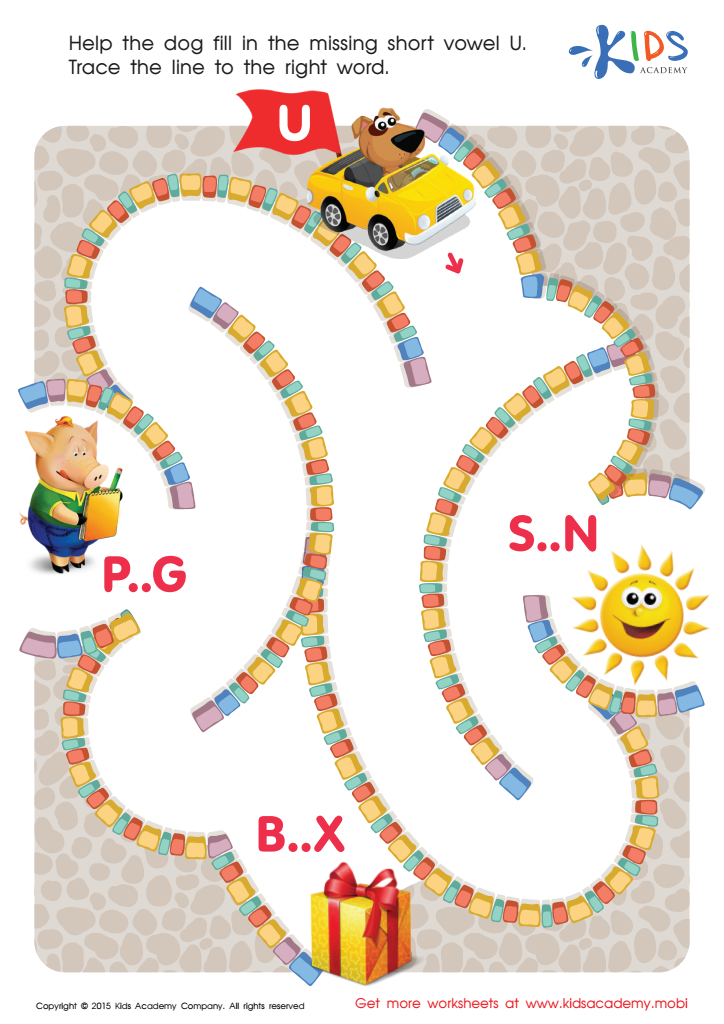

Short Vowel Sound U Worksheet
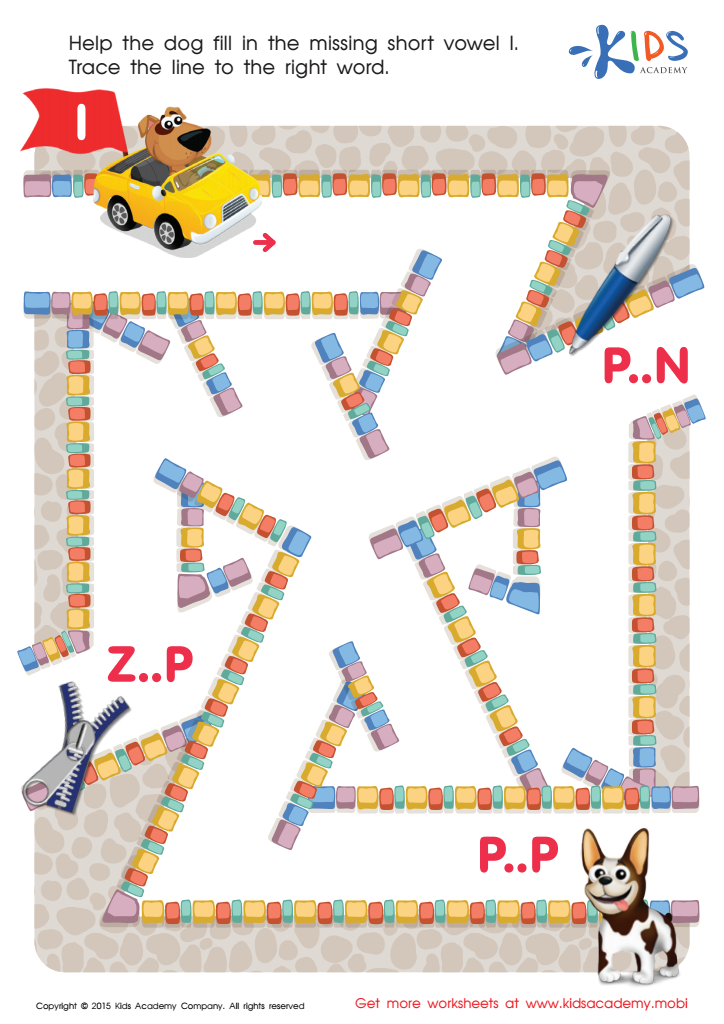

Short Vowel Sound I Worksheet
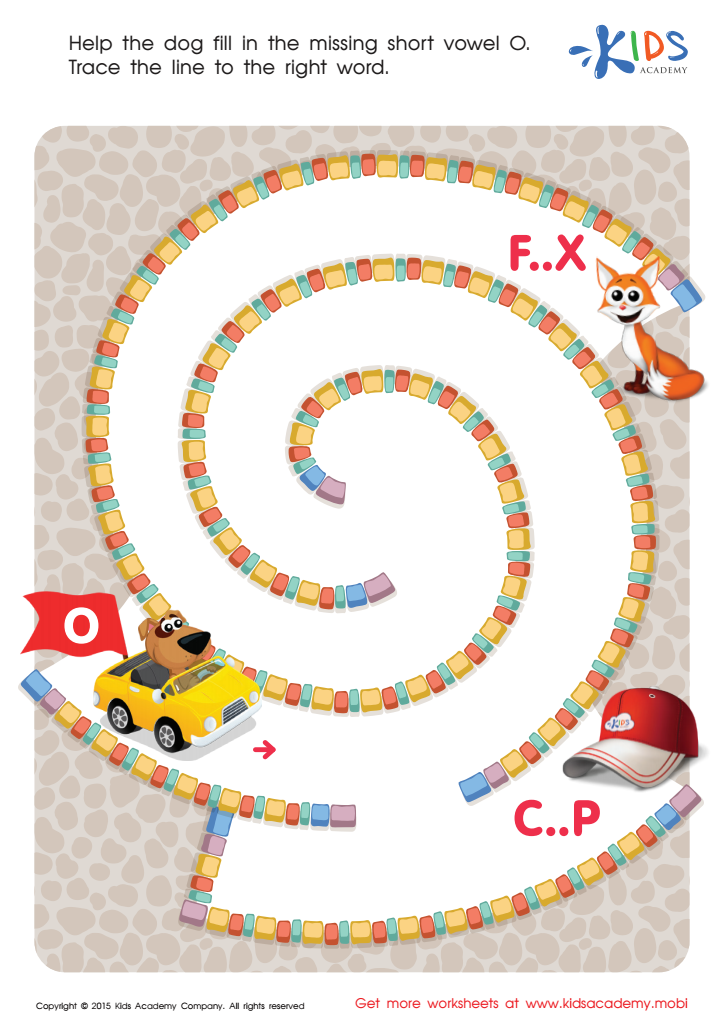

Short Vowel Sound O Worksheet
Vocabulary expansion is crucial for young learners aged 3-9, especially through activities focusing on short vowels. Engaging children in vocabulary-building exercises helps them develop essential language skills that form the foundation for effective communication and literacy. Short vowels are fundamental building blocks in early reading and writing; familiarizing children with these sounds enhances their decoding abilities, making it easier for them to read emergent texts.
Parents and teachers play key roles in fostering this vocabulary growth. By participating in activities—such as phonics games, rhymes, or storytelling centered on short vowels—adults can help children internalize sounds and improve their phonemic awareness. This, in turn, promotes confidence in reading, supports comprehension, and enhances spelling skills.
Furthermore, a strong vocabulary strengthens critical thinking and enables kids to express themselves creatively. When children can utilize a diverse vocabulary, they become more engaged participants in conversations and find it easier to convey their feelings and ideas.
Ultimately, focusing on vocabulary expansion through short vowels prepares children for academic success and cultivates a lifelong love of learning. Engaging children in fun, interactive experiences allows them to embrace language playfully, setting the stage for future educational achievements.
 Assign to My Students
Assign to My Students






